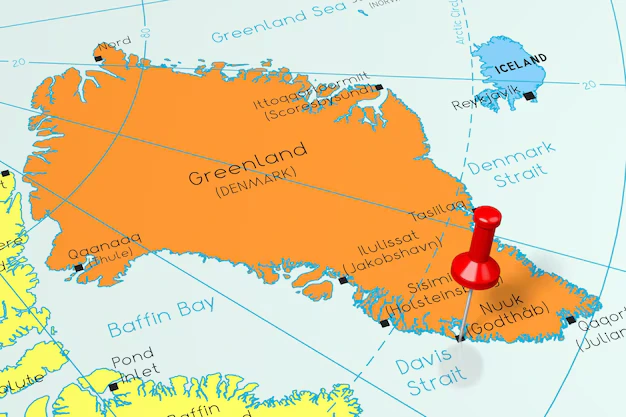
The global political landscape took an unexpected turn when former U.S. President Donald Trump made a surprising demand: the purchase of Greenland. Known as the world’s largest island, Greenland is currently an autonomous territory of the Kingdom of Denmark. Trump’s audacious proposal has sparked a mix of intrigue and outrage, leaving world leaders and media outlets scrambling to analyze the implications of such a move.
Trump’s Vision: Expanding U.S. Territory
Donald Trump, often recognized for his unorthodox political strategies, has reignited discussions about U.S. territorial expansion. This is not the first time the idea of acquiring Greenland has surfaced. As early as 1946, then-President Harry Truman offered Denmark $100 million to buy Greenland. Though the proposal was rejected, the concept of territorial transactions was not uncommon during that era, as demonstrated by the U.S. purchase of Alaska from Russia in 1867 for $7.2 million.
Trump’s argument is rooted in national security and economic interests. He has repeatedly emphasized Greenland’s strategic importance due to its mineral wealth and geographic location. The Arctic island is rich in rare earth elements, graphite, lithium, and gallium—resources critical for technology and defense industries.
Geopolitical Tensions and Strategic Importance
Greenland’s location in the Arctic has become a focal point of geopolitical rivalry. With increasing tensions in the Arctic region, Russia has been expanding its military presence. Analysts suggest that Russia’s Arctic strategy could eventually threaten Greenland, which remains sparsely populated and vulnerable. Trump has pointed out the potential risks of China or Russia attempting to claim Greenland, citing the strategic necessity for the U.S. to prevent such scenarios.
Trump’s plans also tie into broader national security concerns. With China’s dominance in the global supply of rare earth elements (accounting for nearly 98% of production), the U.S. aims to diversify its sources. Greenland, with its untapped mineral wealth, represents a potential solution to this dependency.
Public and Global Reactions
The idea of purchasing Greenland has drawn mixed reactions. While some experts view it as a logical geopolitical move, others criticize it as overly aggressive and reminiscent of imperialist ambitions. Denmark, which governs Greenland’s foreign affairs and defense, has firmly rejected such proposals in the past. Danish leaders have described the idea as “absurd,” reinforcing Greenland’s autonomy under the Kingdom of Denmark.
Meanwhile, the global media has highlighted the potential consequences of this proposal. Could it escalate tensions in the Arctic? Would it lead to a redefined map of global power dynamics? These are just some of the questions analysts are debating.
The Historical Context of Territorial Purchases
Trump’s proposal may seem audacious, but history offers precedents. The U.S. has expanded its territory through purchases multiple times:
- Alaska (1867): Purchased from Russia for $7.2 million.
- Louisiana Territory (1803): Acquired from France for $15 million.
- Philippine Islands (1898): Purchased from Spain after the Spanish-American War.
Even in recent times, territorial exchanges have occurred. For instance, Pakistan acquired Gwadar from Oman in 1958 for 5.5 billion Pakistani Rupees.
A Superpower’s Ambition
If Trump’s plans to acquire Greenland materialize, it could significantly alter the global power structure. Greenland would not only provide the U.S. with a strategic Arctic foothold but also elevate its status as a dominant global superpower. Imagining a future where the U.S. encompasses Canada, Panama Canal, and Greenland paints a picture of unparalleled dominance in the Western Hemisphere.
However, such ambitions are fraught with challenges. Legal, diplomatic, and ethical hurdles make territorial acquisitions in the 21st century far more complex than they were in the past.
India’s Engagement with the U.S.
Amidst these developments, India has begun diplomatic engagement with Trump’s administration. India’s Foreign Minister, Dr. Ajay Shankar, is scheduled to visit the U.S. later this month to establish a foundation of mutual trust and cooperation. This visit marks an important step in strengthening Indo-U.S. relations under a new administration.
Conclusion
Trump’s demand to buy Greenland reflects his bold and often controversial leadership style. Whether or not this ambitious proposal becomes a reality, it has certainly reignited discussions about territorial expansion, national security, and the global balance of power.
As the world watches closely, one thing is certain: this is not the last time Donald Trump will surprise us with his unconventional approach to governance.
What do you think about Trump’s proposal to buy Greenland? Share your thoughts in the comments below!
Also Read: China’s Move to Provide 40 Fifth-Generation Fighter Jets to Pakistan: A Game-Changer for Pakistan
Follow US





